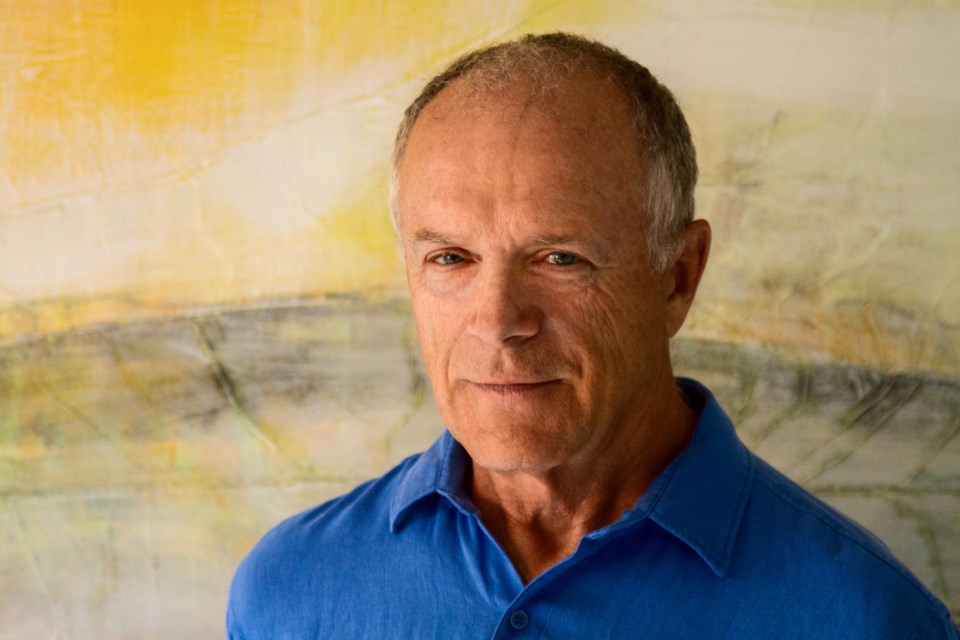Plato said, “Poetry is nearer to vital truth than history.”
When poetry and history are weaved together in Nicholas Ruddock’s, Genetic Memory, it reveals a truth that is both personal and profound.
Genetic Memory has been shortlisted for the Moth Poetry Prize, the world’s largest prize for a single unpublished poem and the winner will be announced during an award ceremony in Dublin, Ireland, on April 30.
“The poem is very autobiographical,” said Ruddock. “Hardly anything I write is, but that poem accurately describes the first three years of my married life.”
Ruddock and his wife Cheryl have lived in Guelph for more than 40 years during which time he has built a successful medical practice and she has established herself as a celebrated visual artist.
Genetic Memory recalls the formative years of their relationship before they put down roots in Guelph.
It picks up shortly after Ruddock committed himself to a career in medicine and takes readers on an epic cross-Canada journey propelled by love, adventure and youthful idealism.
“I did have illusions that I could be a writer,” he said. “So, I took a year off after I graduated in 1969. In order to make money I worked in a button factory on Spadina Avenue probably making more money than I’ve made since as a poet. After nine months of that it became apparent that I should get back into medicine, so I did, and I am very grateful for it.”
Medicine has been Ruddock’s day gig, but he still found time to indulge his passion for words.
He has published two novels The Parabolist in 2010 and Night Ambulance in 2016 as well as a short story collection How Loveta Got Her Baby in 2014.
His short fiction has won a number of national and international awards including two Bridport Prizes in Dorset, England, the inaugural Sheldon Currie Prize in Antigonish, Nova Scotia, the CVC Fiction Prize in British Columbia and the Toronto Book Prize.
In 2016, his short story The Phosphorescence was shortlisted for the prestigious London Sunday Times Short Story Award.
“We went over to London for the award ceremony about four years ago,” said Ruddock. “That was very fancy. We had waiters with gloves serving dinner and there were a lot of famous people. I lost,or should I say, I did not win. But it is great to be shortlisted too.”
The shortlist for the Moth Poetry Prize is indeed short with only four poets selected out of hundreds of submissions from around the world.
“The judge Claudia Rankine is an American poet and her work is very political,” said Ruddock. “To be chosen by her is even more of an honour and a bit of a feather in the hat to me. It means that she is taking the poem very seriously.”
The opening verse of Genetic Memory sets the tone.
“We met on Dupont Street in a spring blizzard, snow coming down aslant, and after that whatever you had fell apart, you left your husband, we took custody of your three-year-old son and drove north of Superior …”
It continues on a stream of consciousness north west into Yukon Territory.
“It is likely the most Canadian poem ever written in that there are at least 45 distinct Canadian references that I think would go over the heads of all the judges in Ireland,” said Ruddock. “Apparently, it didn’t matter if they didn’t exactly grasp it. They get the idea.”
It was the 1970s when asbestos mining was still highly lucrative and its impact on the environment and human health was yet to be measured.
“Being in the hospital there I didn’t have the same direct exposure the average worker would have had.,” said Ruddock. “It wasn’t a big thing then. If somebody came into the hospital covered with asbestos fibres, they just shook it all off and everyone would laugh and compare it to snow.”
Hindsight allows readers to compare the cost of complacency with contemporary issues such as climate change and the COVID-19 Pandemic.
“Rogue fibres hitched rides on inspired air, tricking the genome, slivering into cells of lungs, throats, ovaries, twisting the helix, mitosis, cancer, mesothelioma, asbestosis, scientists, politicians, businessmen, accountants, too much evidence to ignore, after two years the mine was closed, our one-purpose extractive town depopulated to zero.”
The Ruddocks pulled up stakes and migrated east.
“We moved to Montreal and had our first child together,” said Ruddock. “So, it is very personal but, it also jumps into a much more serious vein half-way through – the degradation of the planet as perhaps we are having lowered on us right now. I guess the selfish gene is kicked in pretty solidly in our DNA.”
Ruddock has retired from medicine and has more time to write but ironically it is restrictions related to the COVID-19 pandemic that will in all likelihood prevent him, Cheryl and, of course, Genetic Memory, from making the last leg of their poetic journey.
“Moth Magazine is celebrating its 10th birthday and this contest has achieved a certain panache or respectability in poetry circles,” said Ruddock. “The winner gets 10,000 Euros and the losers get their 1,000 Euros. I think it would double or triple my earnings over the last 20 years in poetry. Whether or not I win the award there is going to be a ceremony in Ireland. We were set to go but I don’t think that will be possible with international travel the way it is.”


